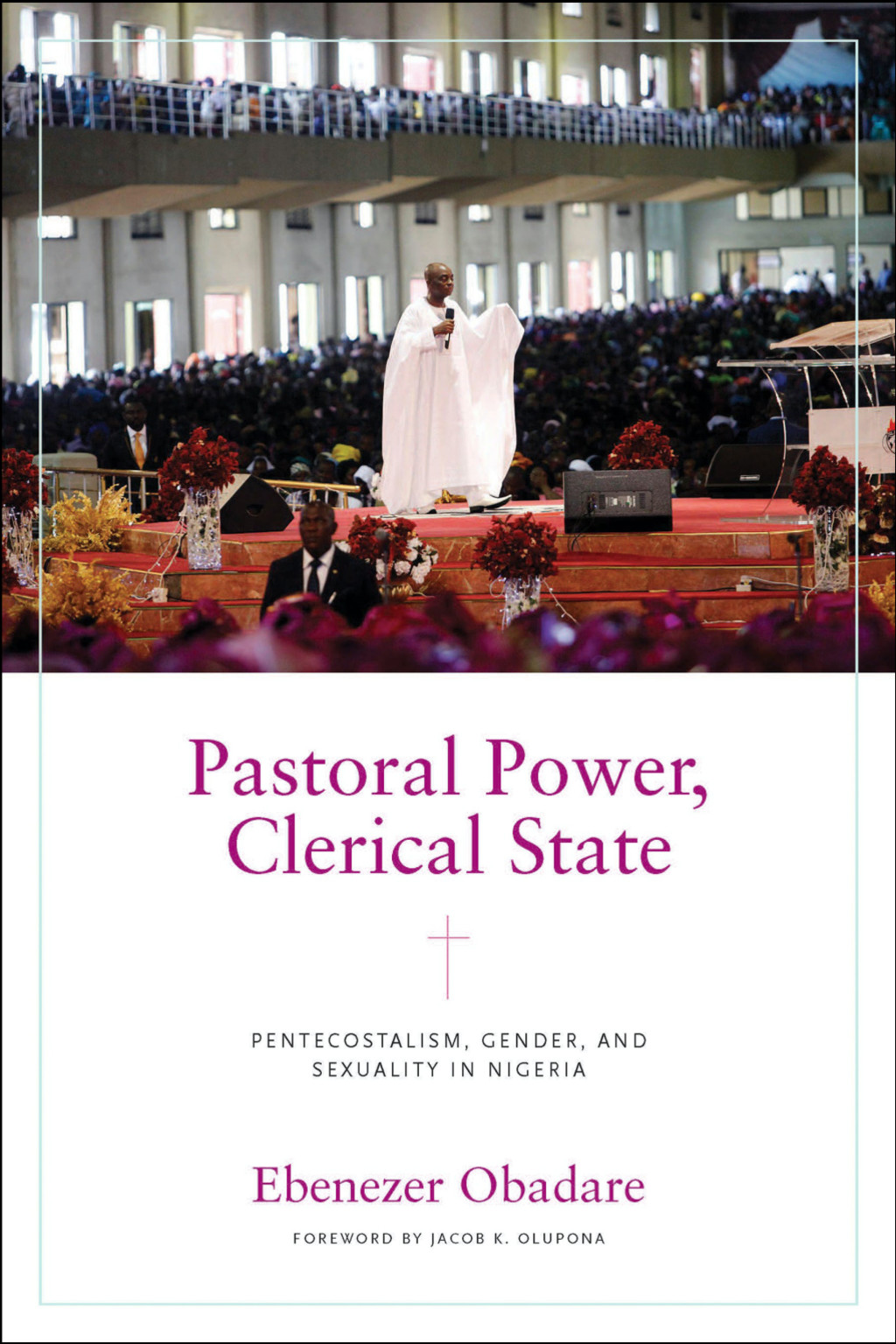Pastoral Power, Clerical State
Pentecostalism, Gender, and Sexuality in Nigeria
Ebenezer Obadare examines the overriding impact of Nigerian Pentecostal pastors on their churches, and how they have shaped the dynamics of state-society relations during the Fourth Republic.

- Publisher
- Notre Dame Press
- Release Date
- September 2022
- Pages
- 222
- ISBN
- 9780268203139
Pentecostal pastors enjoy an unprecedented authority in contemporary Nigerian society, exerting significant influence on politics, public policy, popular culture, and the moral imagination. In Pastoral Power, Clerical State, Ebenezer Obadare investigates the social origins of clerical authority in modern-day Nigeria with an eye to parallel developments and patterns within the broader African society.
Obadare focuses on the figure of the pastor as a bearer of political power, thaumaturgical expertise, and sexual attractiveness who wields significant influence on his church members. This study makes an important contribution to the literature on global Pentecostalism. Obadare situates the figure of the pastor within the wider context of national politics and culture and as a beneficiary of the dislocations of the postcolonial society in Africa’s most populous country. Obadare calls our attention to the creative ways in which Nigeria’s Pentecostal pastors utilize religious doctrines, beckon spiritual forces, and manipulate their alliances with national power brokers to consolidate their influence and authority.
In contrast to rapidly eroding pastoral authority in the West, pastoral authority is increasing in Nigeria. This engaging book will appeal to those who want to understand the far-reaching political and social implications of religious movements—especially Christian charismatic and evangelical movements—in contemporary African societies. It will be of interest to scholars and students of sociology, religion, political science, and African studies.
Reviews and Endorsements
Pastoral Power, Clerical State is an unrelenting display of scholarly excellence, rigorous analysis, and fluid precise prose. It not only advances our understanding of Pentecostal pastoral power and authority but also makes significant contributions to the study of rule and legitimacy in twenty-first-century African societies.
Nimi Wariboko, author of The Pentecostal Hypothesis
In this highly stimulating and thought-provoking book, Ebenezer Obadare discusses the rise and all encompassing prominence of the Nigerian Pentecostal pastor. Obadare’s brilliantly written book provides a unique and original contribution to the understanding of the key role of the pastor when explaining the rise and influence of Pentecostalism in contemporary Nigeria and Africa.
Karen Lauterbach, author of Christianity, Wealth, and Spiritual Power in Ghana
Informed by an authoritative interdisciplinary social science analysis, critical reading of Africanist scholarship, wealth of eclectic primary source materials, and superior knowledge of Nigerian politics and society, Pastoral Power, Clerical State further underscores the crucial place of Nigeria’s Pentecostal movement in African religious and political studies. This exceptional book is intellectually sophisticated, analytically rigorous, and very well written.
Olufemi Vaughan, author of Religion and the Making of Nigeria